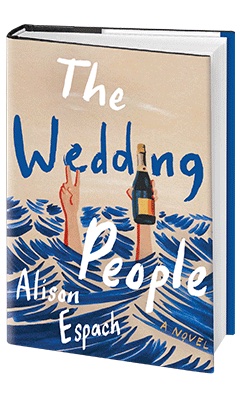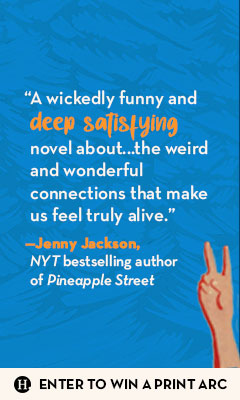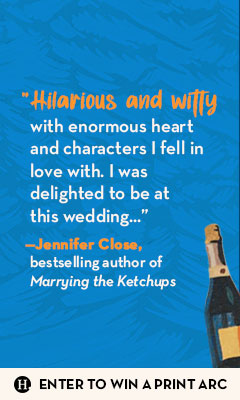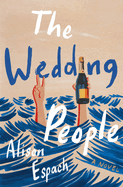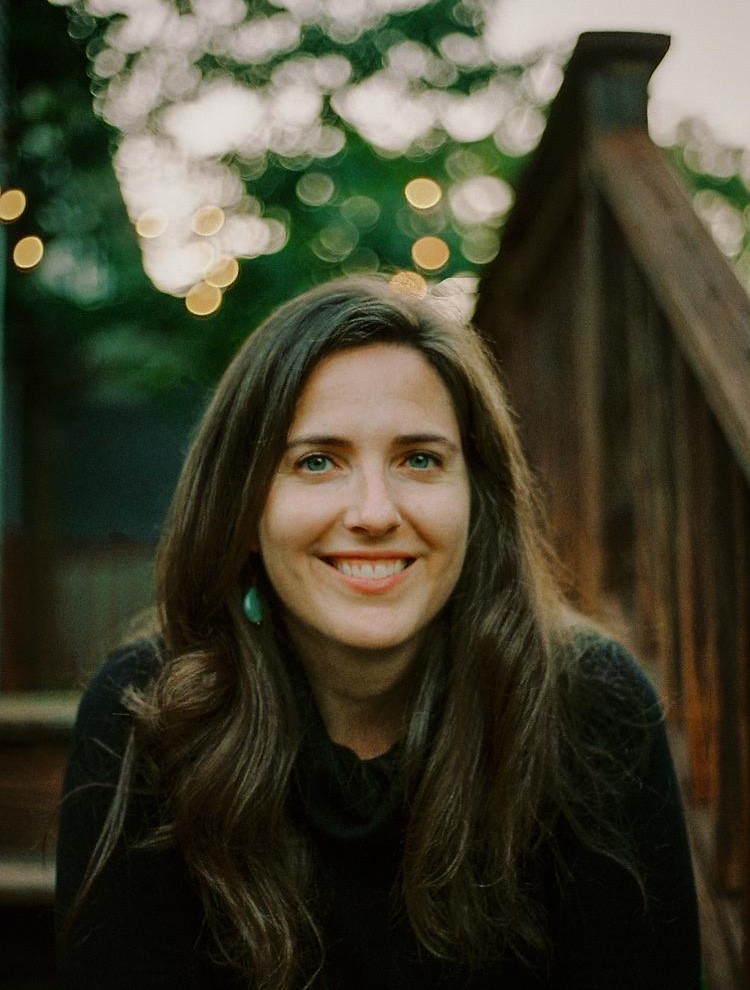The Wedding People
by Alison Espach
Alison Espach's sharp, insightful third novel, The Wedding People, explores the contrast between society's expectations and the often uncomfortable realities that lie beneath. Over the course of one wedding weekend in Newport, R.I., Espach (Notes on Your Sudden Disappearance) examines the complicated interactions between people at a wedding, the clash of public and private personas, and what happens when unexpected events hijack carefully laid plans.
Adjunct professor Phoebe Stone, still reeling from her divorce and the Covid-19 pandemic, is struggling to continue with "normal" life at her university in St. Louis. After encountering her ex-husband and his new paramour (a colleague, and formerly Phoebe's friend) in her makeshift office at work, Phoebe makes a decision: she dons an emerald silk dress and heads to the Cornwall Inn, a posh Newport hotel where she and her husband had once planned to vacation. Instead, Phoebe now intends to end her life, effectively solving the problem of what to do with herself post-marriage, post-infertility diagnosis, post-pandemic. Once there, however, Phoebe realizes the hotel is rented out for a splashy wedding. And when she meets the bride, Lila, in the elevator, her plan begins to fall apart.
Bubbling over with wedding excitement, Lila is puzzled to encounter Phoebe--the one non-wedding element in her perfectly orchestrated weekend. When Phoebe ends up blurting out the truth about her planned suicide, Lila recoils, insisting that Phoebe can't kill herself and therefore ruin the whole wedding weekend. Improbably, Lila takes Phoebe into her confidence, making her part of the multi-day celebrations and, eventually, a member of the wedding party. Although the two women are, on the surface, at wildly different places in their lives, they discover they have a few things in common--and Phoebe's rejection of her previous choices opens the door for Lila to perhaps rethink her choices, too.
Espach's smart, breezy narrative deftly mixes gallows humor and biting social commentary. Her cast of characters includes recognizable types, treated with compassion: socially awkward academics who don't know what to say to a grieving colleague; Lila's brassy, sequin-wearing mother who has her own set of insecurities; and Lila's groom, Gary, a widowed single dad struggling with the implications (for himself and his tween daughter) of marrying again. Although Lila's friends and family are (mostly) genuinely happy for her, they all come to the wedding carrying their own baggage, and Phoebe bears witness to some of that baggage--poignant, funny, embarrassing--throughout the weekend.
Through the lens of Phoebe's struggles, Espach illuminates several universal truths, starting with how people tend to behave at weddings, falling into roles they may not even fit into, but which nevertheless feel prescribed by their relationship (or lack of it) to the bride and groom. As Phoebe observes and participates in toasts, the bachelorette party, and the rehearsal dinner, she watches the wedding people play their roles (or chafe at them), and glimpses their emotions--joy, frustration, grief, boredom--peeking through. Espach also explores the complications of family dynamics, such as the angst and grief radiating off Gary's daughter, Mel (nicknamed Juice); the patronizing attitude of Gary's straitlaced older sister, Marla; and Gary's deep bond with his dead wife's brother, Jim. Although several guests begin by admitting difficult truths only to Phoebe, they (and she) start to wonder if they can be more honest with themselves and one another.
In the rarefied world of the Cornwall (and thanks to the concierge, Pauline), Phoebe can put aside her material worries for a while, leaving her free (or forced) to focus on her emotional landscape. She reflects on her marriage to a fellow professor; the deep loneliness of her childhood as the only daughter of a widowed father; and the ways she's worked hard to fulfill certain dreams, only to recognize that effort and desire might not be enough to create her picture-perfect life. Though she's sometimes appalled at Lila's casual assumption that the world revolves solely around her concerns, Phoebe also finds herself impressed by Lila's sheer force of will--and compelled by this real-life unfolding of the marriage plot that has always appealed to her in fiction and film. Espach draws deft parallels between Phoebe's love of weddings, Lila's impending nuptials, and Phoebe's current crossroads in life; even the elegant Newport setting echoes the themes of polished exteriors versus an authentic identity with (no doubt) a few cracks.
By the end of the narrative, several characters have made decisions that may upend the traditional sequence of events. But regardless of how the wedding unfolds, Phoebe must eventually decide if she's going to carry out her original plan or continue with her future, as blank and uncertain as it feels. Finding herself "beyond the traditional plot points of a life," she has to choose whether and how to keep writing a story containing a whole load of unknowns.
Smart, often sad, and laugh-so-you-don't-cry hilarious, The Wedding People is a wry, entertaining meditation on the complexities of adulthood, the surprising ways people can change, and the truths (and lies) we tell ourselves. --Katie Noah Gibson



